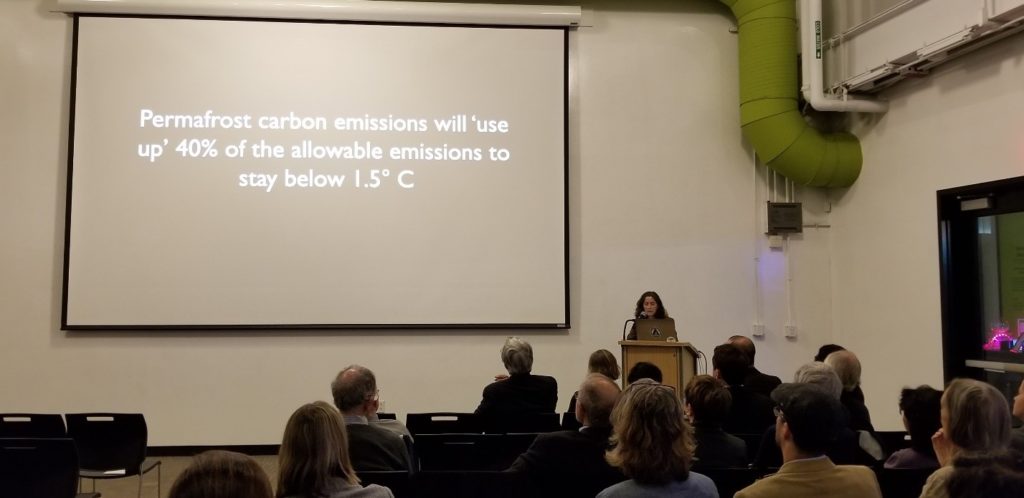Trillium Hosts the Woods Hole Research Center and the Arctic Initiative at the Harvard Kennedy School Belfer Center to discuss global significance of thawing arctic permafrost
On October 17th at District Hall in Boston, Trillium hosted The Woods Hole Research Center and the Arctic Initiative at the Harvard Kennedy School’s Belfer Center for Science and International Affairs, for a night focused on discussion of the global significance of thawing arctic permafrost. The evening featured three speakers, introduced by our own Elizabeth Levy: Dr. Sue Natali and Dr. Brendan Rogers, both associate scientists at Woods Hole Research Center, and Dr. John Holdren, A Professor of Environmental Policy at the Harvard Kennedy School of Government, Belfer Center for Science and International Affairs.

As the talk unfolded, it became clear the intensity, relevance, and importance of this issue to the global human community. As the world grapples with rapidly accelerating climate change, many policy makers are overlooking the thawing permafrost, which is one of the most significant climate threats. This frozen Arctic soil stores a vast amount of carbon, and as permafrost thaws, it threatens to amplify global warming by releasing greenhouse gases into the atmosphere. Emissions from thawing permafrost, however, were not included in the climate models that underpinned the 2015 Paris climate agreement because of insufficient science.
Woods Hole Research Center and the Arctic Initiative at the Harvard Kennedy School’s Belfer Center for Science and International Affairs, are combining their science and policy expertise to develop an arctic carbon monitoring and prediction system. Together, they are developing the scientific research to include carbon emissions from permafrost in the next round of international climate commitments.
The topics may have not been light-hearted, but Trillium was delighted to be alongside such inspiring change-makers in an evening of learning and conversation. It is crucial as ESG investors to constantly adapt and learn about the issues that need to be considered when we choose companies in which to invest, engage with companies and governments to push for positive change, and decide which initiatives to support.
Find more information at http://whrc.org/project/arctic-permafrost/ and https://www.belfercenter.org/arctic-initiative/overview-arctic-initiative







